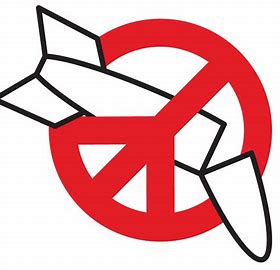 AS LEADERS INCLUDING US PRESIDENT JOE BIDEN prepare to attend a Nato summit in Brussels on 14 June, the Nobel Peace Prize-winning International Campaign to Abolish Nuclear Weapons (ICAN) has released a major report arguing that members of the transatlantic alliance should embrace the UN Treaty on the Prohibition of Nuclear Weapons, which entered into force this January.
AS LEADERS INCLUDING US PRESIDENT JOE BIDEN prepare to attend a Nato summit in Brussels on 14 June, the Nobel Peace Prize-winning International Campaign to Abolish Nuclear Weapons (ICAN) has released a major report arguing that members of the transatlantic alliance should embrace the UN Treaty on the Prohibition of Nuclear Weapons, which entered into force this January.
The 116-page report proposes that Nato take steps to become a “non-nuclear alliance”, in line with its own objectives and the new norm set by the United Nations. Further, those Nato members that are ready to join the UN treaty should be free to do so, without fear of repercussions from their allies, particularly the United States, France, and the United Kingdom, which still possess nuclear arsenals.
The report highlights the widespread support for the Treaty on the Prohibition of Nuclear Weapons (TPNW) within many Nato states, as evidenced by public opinion polls, parliamentary resolutions, political party declarations, and statements from past leaders. It notes that Nato members face no legal barrier to joining the treaty, so long as they commit not to engage in or support any nuclear-weapon-related activities.
Key conclusions of the report:
- Nato has long recognised the threat that nuclear weapons and other weapons of mass destruction pose to its security. Rising tensions and risks are only increasing the incentives for disarmament.
- Instead of accelerating its efforts to advance nuclear disarmament, Nato has been moving in the opposite direction – contrary to its own objectives and undermining its own security.
- The Treaty on the Prohibition of Nuclear Weapons is now a permanent part of international law, and enjoys broad global support. Nato’s hostility towards it is directly contrary to its own interests.
- By joining the TPNW, Nato members can help to strengthen barriers against proliferation, open up pathways for disarmament and assist victims of nuclear testing.
- While Nato as an alliance remains firmly opposed to the TPNW, there is strong and growing support for it within many Nato states.
- Much of the opposition to the TPNW, including from Nato states, is based on myths and misconceptions, as well as deliberate falsehoods.
- While total elimination of nuclear weapons may remain a distant goal, envisioning and planning for Nato as a ‘non-nuclear alliance’ should begin now – in line with the new global norm.
Evidence of support for the Treaty within Nato:
- Opinion polls in 11 Nato states have shown overwhelming public support for joining the Treaty on the Prohibition of Nuclear Weapons.
- More than 50 former leaders, foreign ministers, and defence ministers – including two who served as Nato Secretaries General – have implored current leaders to “show courage and boldness” and join the TPNW.
- Parliaments, including in Italy, the Netherlands, and Spain, have conveyed their broad support for the TPNW and called for executive action.
- More than a thousand parliamentarians in Nato states have pledged to work to bring their respective countries on board.
- More than 400 cities in Nato states, including Paris, Berlin, Amsterdam, Oslo, Barcelona, Edinburgh, Los Angeles, and Washington DC, have urged their respective national governments to ratify the TPNW.
Richard Lennane, co-author of the report and a former UN disarmament official said: “Nato members need to shake off the restrictions of reactive, short-term thinking about nuclear weapons, and instead re-embrace the vision of nuclear disarmament as a preventative tool for shaping Nato’s security environment. While total elimination of nuclear weapons may remain a distant goal, envisioning and planning for Nato as a ‘non‑nuclear alliance’ should begin now.”
Tim Wright, ICAN’s treaty coordinator and co-author of the report said: “The growing tide of political support for the new UN treaty in many Nato states, and the mounting public pressure for action, suggests that it is only a matter of time before one or more of these states take steps towards joining. Ultimately, governments are accountable to their citizens and cannot indefinitely ignore the democratic will.”
The meeting on 14 June will discuss Nato’s strategic direction for the coming decade (its 2030 agenda), including the future role of weapons of mass destruction in Nato’s security doctrine. This is the first summit to be held since the UN Treaty on the Prohibition of Nuclear Weapons entered into force. Given the growing risk of nuclear weapons use, Nato states must do more to promote nuclear disarmament. As the alliance formulates its goals and strategies for 2030 and beyond, it should seize the opportunity to set out a clear vision for its future as a non‐nuclear alliance.
Key questions for Nato:
- Will Nato acknowledge the broad and growing public support for the TPNW in many of its member states?
- If a Nato member wishes to join the TPNW, is it free to do so? Would the Nato secretariat stand in the way?
- Does Nato accept the conclusion (of Norway and others) that there is no legal barrier for a Nato member state to ratify the TPNW?
- What steps has Nato taken over the past decade to reduce its reliance on nuclear weapons (as per the Nuclear Non-Proliferation Treaty action plan)?
- Has Nato developed a road map and time table for ending the forward deployment of US nuclear weapons in Europe?
- Does Nato accept the recommendation that envisioning and planning for Nato as a ‘non-nuclear alliance’ should begin now?
* Read A Non-Nuclear Alliance: Why Nato members should join the UN ban on nuclear weapons here.